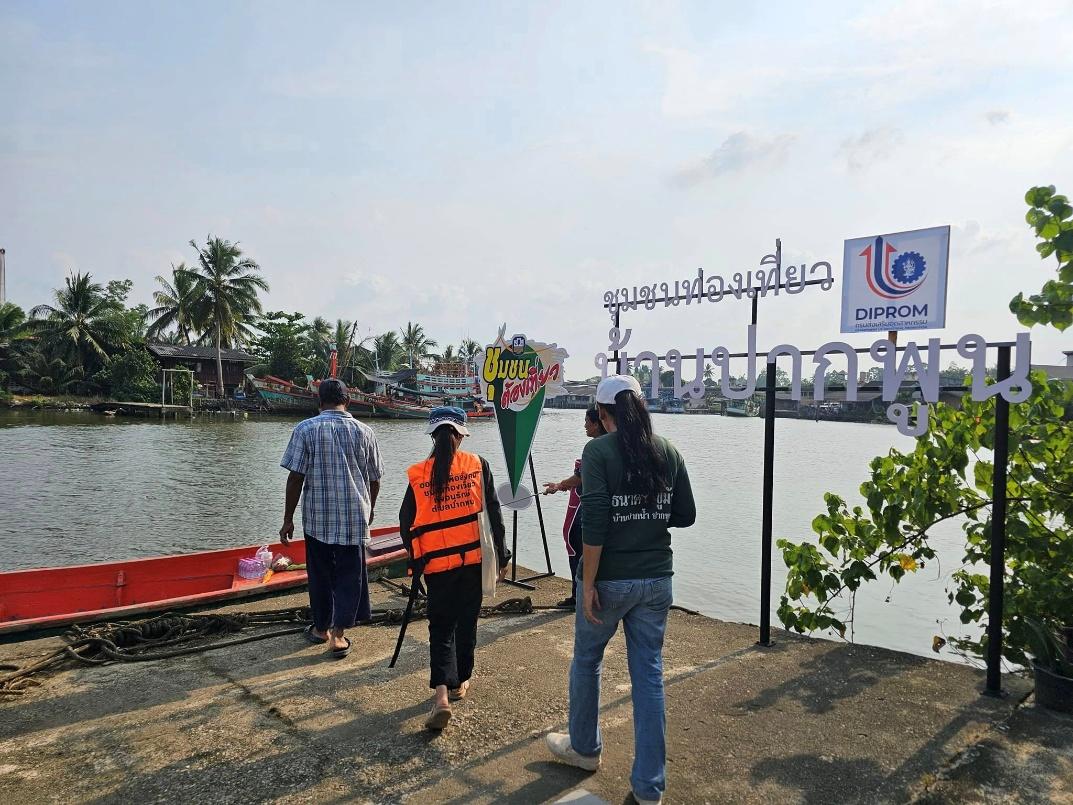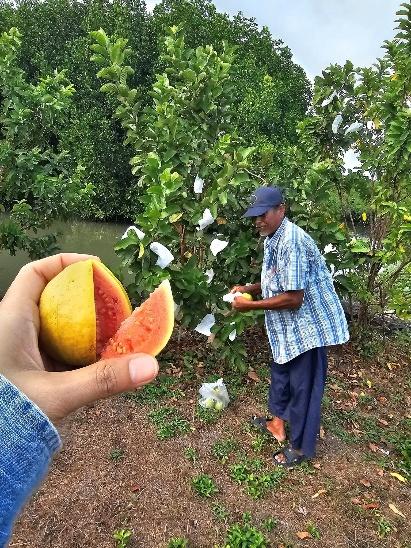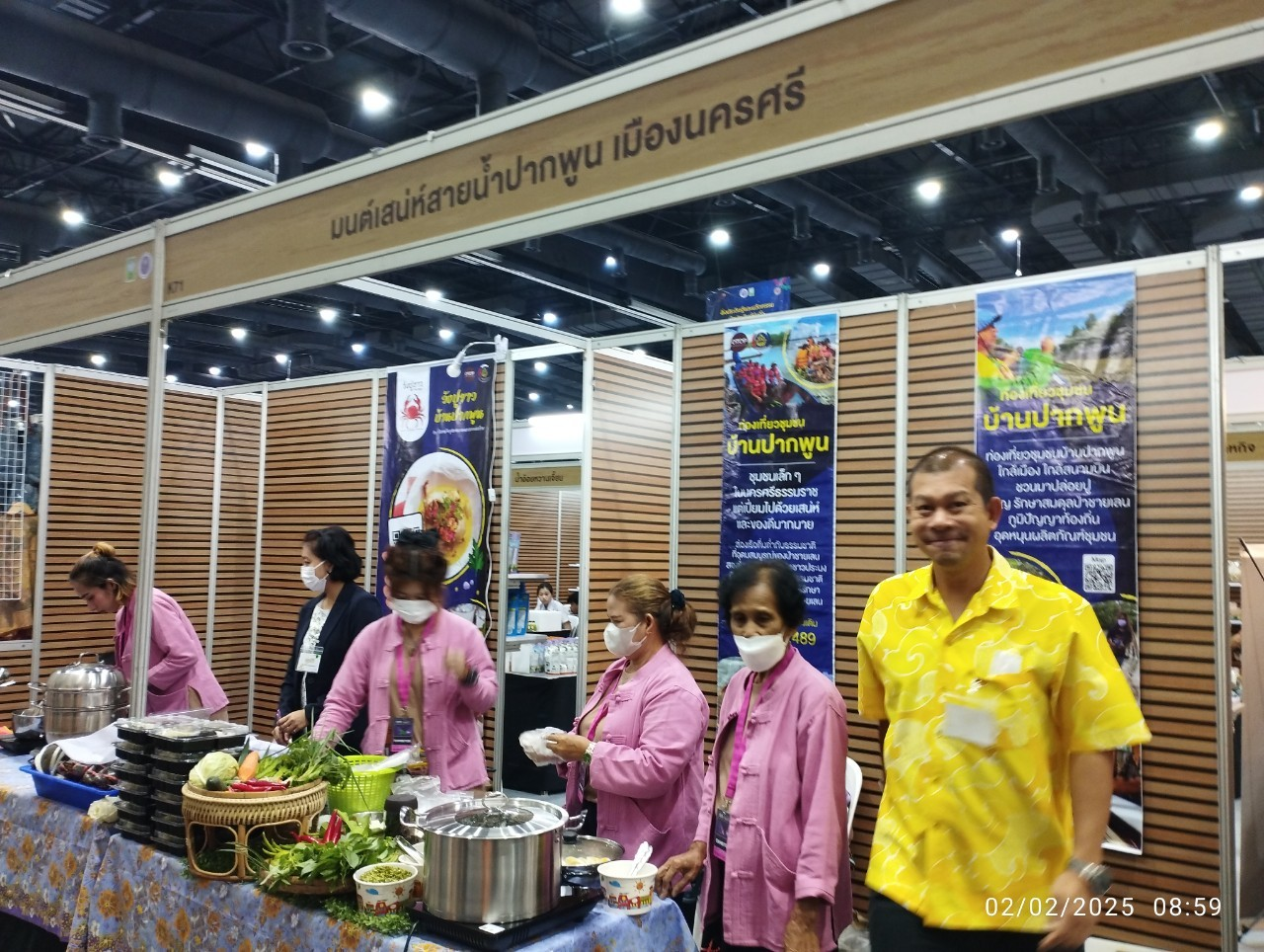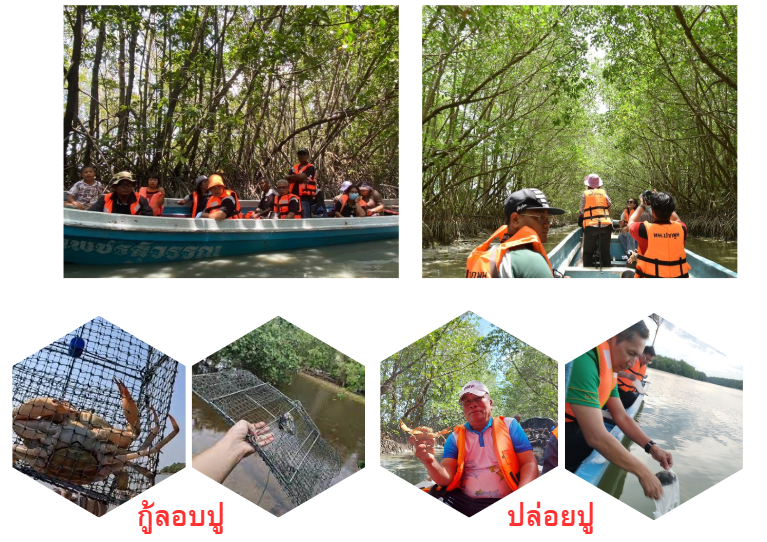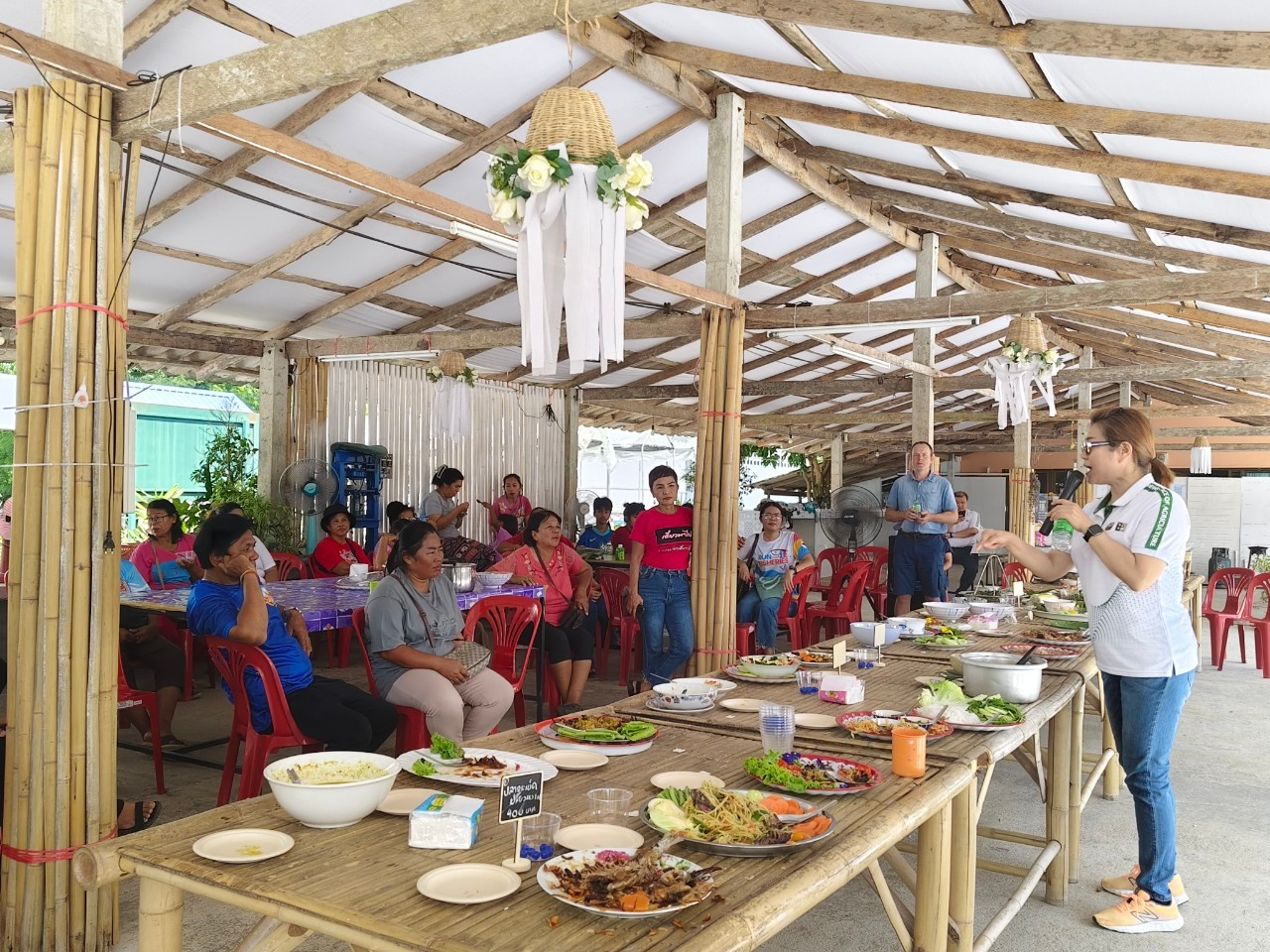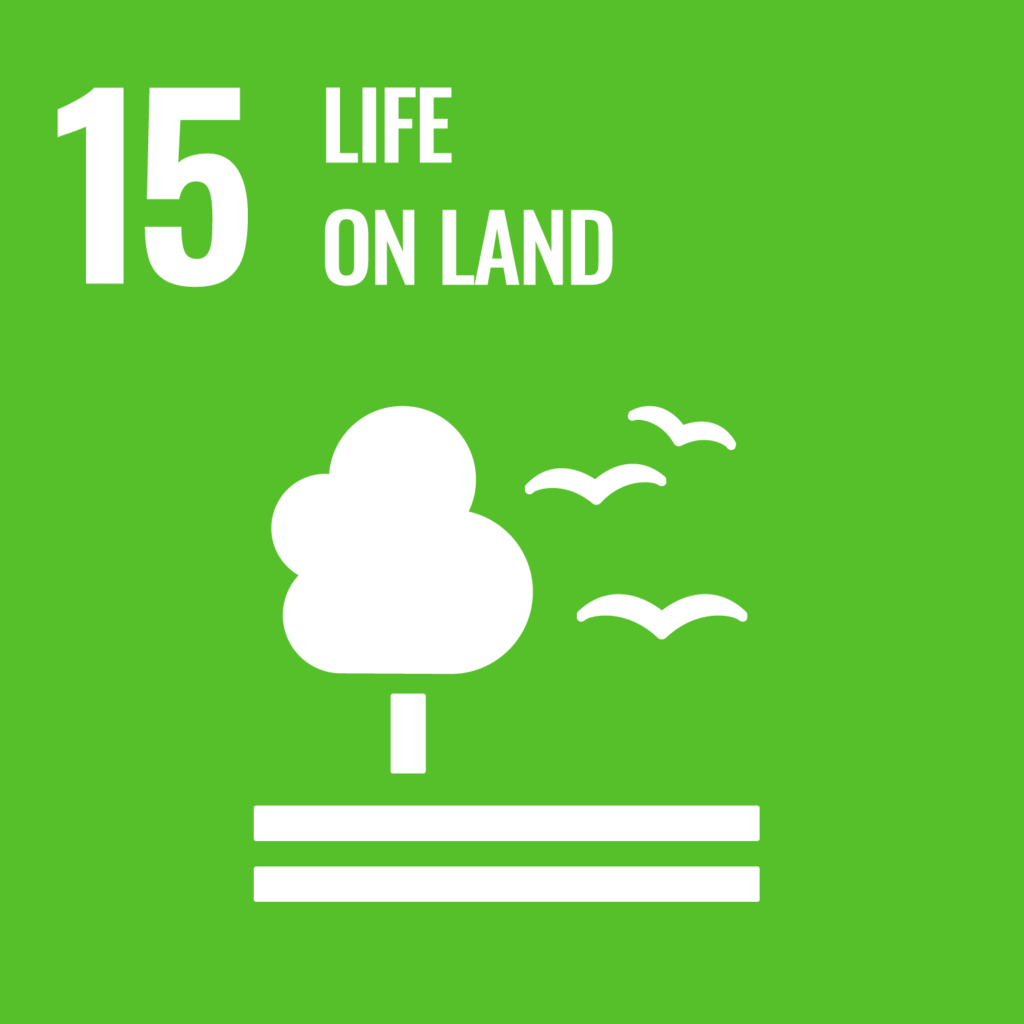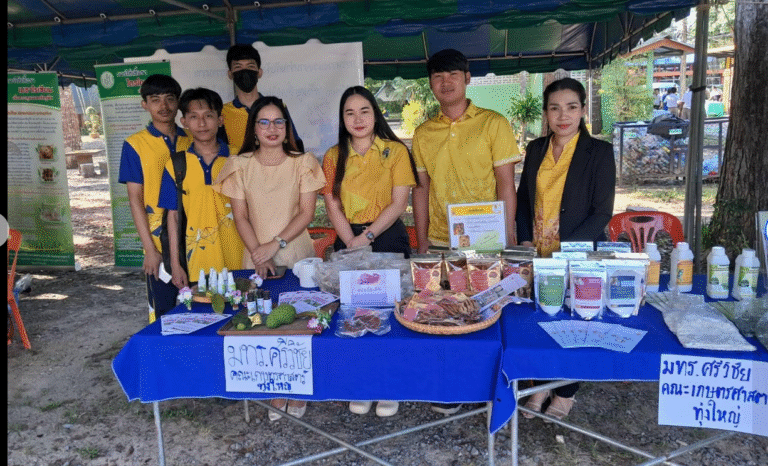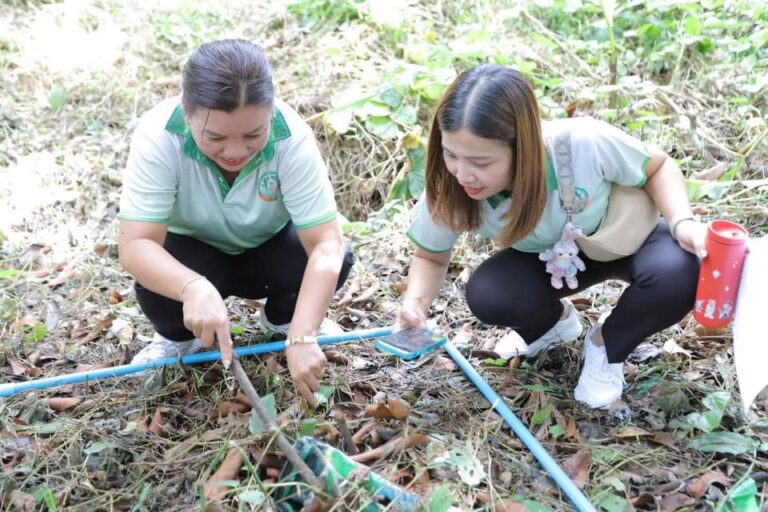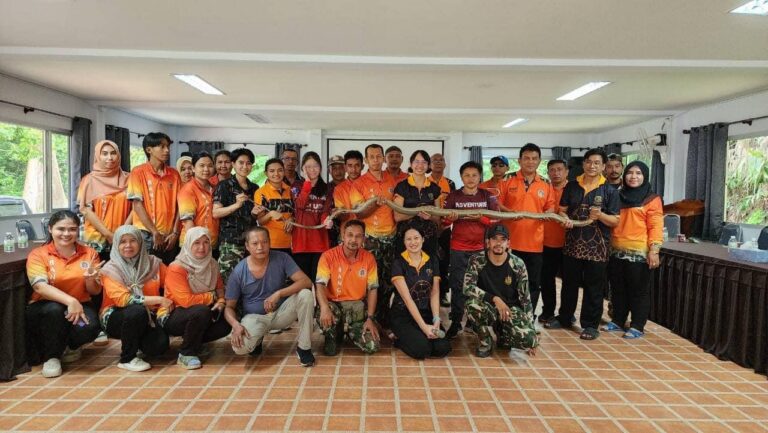Reporters: Asst.Prof.Dr. Prapot Maliwan
Assoc.Prof.Dr. Pornsil Seephueak
Asst.Prof.Dr. Nion Chirapongsatonkul
Asst.Prof.Dr. Worawitoo Meesook
Evidence Date: during 2024 Jan-Dec
Related Indicators: 15.2.6
Details:
Collaborative Tourism Development and Community Capacity Building
Rajamangala University of Technology Srivijaya actively collaborates with the Pakpoon Canal community in Mueang District, Nakhon Si Thammarat, to develop sustainable tourism through comprehensive outreach and engagement activities in 2024. The Faculty of Agriculture research team, led by Dr. Kittichon U-taynapan, works directly under the grant supported by NRCT, with local residents to survey and develop eco-tourism trails that showcase the area’s unique coastal ecosystems including mangrove forests, traditional fishing grounds, coconut plantations, and aquaculture sites. Local community members play essential roles in preserving the area’s natural and cultural heritage through active participation in tourism development activities. Many residents serve as knowledgeable guides, sharing traditional ecological knowledge about mangrove ecosystem management, sustainable fishing practices, and local aquaculture techniques with visitors. These community guides ensure tourists have safe, educational experiences while highlighting the importance of environmental conservation and sustainable resource management. The university provides systematic training programs that enhance local capacity in tourism service provision, environmental interpretation, and sustainable land management practices. Through hands-on workshops and field activities, community members learn to create authentic tourism experiences that reflect local identity while maintaining ecological integrity. The collaboration fosters sustainable tourism development that generates economic benefits while promoting environmental stewardship and cultural preservation. University researchers and community members jointly conduct site assessments to identify tourism potential areas and develop management strategies that balance visitor access with ecosystem protection. This partnership model demonstrates effective knowledge exchange where academic expertise combines with traditional local wisdom to create innovative sustainable tourism solutions.
Integrated Community Engagement and Environmental Education Activities
The outreach program implements diverse engagement activities that connect tourists with natural coastal environments while supporting community economic development and environmental conservation goals. Visitors participate in experiential learning activities including mangrove restoration projects, traditional fishing demonstrations, coconut grove tours, and sustainable aquaculture observations that provide authentic insights into coastal community livelihoods and ecosystem management. These activities attract eco-conscious tourists interested in meaningful cultural and environmental experiences while generating sustainable income streams for local families. The university facilitates community-based tourism exhibitions and promotional events where local residents showcase unique identity products derived from sustainable resource utilization including traditional fishing crafts, coconut-based products, and aquaculture innovations. Through these outreach initiatives, community members develop marketing skills and tourism service competencies that enhance their capacity to independently manage sustainable tourism enterprises. Educational components emphasize ecological significance of coastal ecosystems and demonstrate how traditional practices contribute to biodiversity conservation and ecosystem health. The program creates measurable outcomes through documented capacity building activities, increased community participation in tourism management, and enhanced environmental awareness among both residents and visitors. University support includes technical assistance in developing tourism infrastructure, creating interpretive materials, and establishing community-based tourism networks that connect Pakpoon Canal with broader sustainable tourism initiatives. The collaborative approach ensures community ownership of tourism development processes while maintaining academic oversight that promotes best practices in sustainable land management for tourism purposes. This comprehensive engagement model serves as a replicable framework for university-community partnerships in coastal tourism development that effectively balances economic opportunities with environmental protection and cultural heritage preservation through systematic educational outreach and collaborative management strategies.
